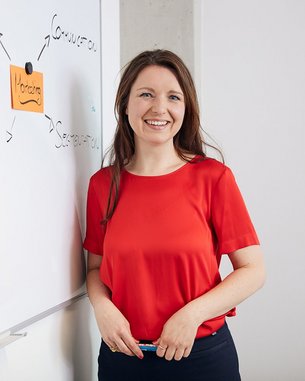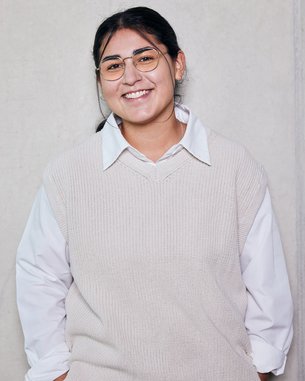
You have received your letter of admission? Then it's time to plan your studies in Fürth!

You have received your letter of admission? Then it's time to plan your studies in Fürth!
You may well have questions about how to get your visa and your residence permit. We will be happy to provide you with individual support. We have also put together a list of frequently asked questions on organisational issues for you. You like to arrange an appointment? Via the button you can contact us! We are looking forward to hearing from you!
Obtaining a visa is one of the most important first steps for prospective students from abroad. Whether you need a visa or not depends on which country you come from. Please note that the visa process can be long, so make sure you start the application process as soon as possible.
To be sure, please contact the German Embassy in your home country to find out whether you need a visa to enter Germany. Detailed information about visa for Germany can be found on the DAAD websites “study in Germany”. Indian Students can find relevant information here.
There are several types of visas, so be sure to apply for a student visa, and under no circumstances come to Germany on a tourist visa. You cannot study in Germany on a tourist visa, and a tourist visa cannot be converted into a student visa.
Student visas are usually issued for a three-month period. After you have arrived in Fürth and enrolled at SRH University Wilhelm Löhe, you will have to apply for a long-term residence permit at the Registration Office for Foreigners in your place of residence (Fuerth, Nuremberg, Erlangen, etc.).
The entire visa procedure can take eight to twelve weeks, especially for autumn admissions. So ideally, you should submit your visa application to the German embassy or consulate in your country as soon as you have the letter of acceptance from SRH University Wilhelm Löhe.
As a rule, you will be asked to present:
The formalities involved in obtaining a residence permit (from the Ausländerbehörde) depend on which country you come from.
Be prepared to present the following documents on request:
You will then be issued a residence permit valid for at least one year and a maximum of two years. It can be extended if necessary. Be sure to submit your application for your residence permit before your current visa/residence permit expires, even if you have not yet collected all the necessary documents. In this case, you will receive a provisional proof of application for the residence permit.
You are welcome to bring your family. For students who want to take their family with them, there is unfortunately hardly any information on the websites of the German embassies. Ask them directly; this is the safest thing to do because the requirements can differ from country to country. Sometimes you can add family members to the application for a study visa for yourself. In any case, you will need various documents from your family members, e.g. passports, passport photos, birth certificates of your children, marriage certificates, etc. In most cases, you will need the original. In most cases you will need the original, a certified copy and an official translation into German; sometimes an English translation is sufficient, please enquire.
It is important that you have enough money per person travelling with you to ensure that you are financially secure. The easiest way is to pay an appropriate amount into the blocked account. If you later apply for a residence permit to study in Germany, you will also need to apply for a residence permit for your family members. Again, you will need all the documents in German translation for each family member. In most cases, these are the same documents that you submitted for the visa. In addition, you will need new documents, see our information on residence permits.
You may work up to 120 full days (full day = 8 hours per day) or 240 half days (half day = 4 hours) during the calendar year. Self-employment is not allowed.
For a total stay of up to 90 days within a period of 180 days. This regulation only applies to visits for tourism purposes. Attention! In order to study or do an internship in another country of the European Union, you may have to apply for a study or internship visa. Please enquire at the respective embassy about the requirements.
Your residence permit is only valid in conjunction with your passport. If your passport expires before your residence permit, your residence permit is also no longer valid. If you leave Germany for more than 6 months, your residence permit expires automatically.
At the time you need to apply for or renew your residence permit, we recommend that you live in the city where you study. In case you do not live in the city, the immigration office can probably only give you a fictitious certificate of 3 months.
Generally, you are only allowed to take one semester off or extension. For the second semester of leave or extension, you must apply for it and then your situation will be analyzed by the state office to see if you have been properly pursuing your studies and making adequate progress.
If you need more information, you can have a look at the DAAD websites or the Federal Foreign Office.
Of course we will support you and try to answer all further questions. Via the button you can arrange an appointment.
Do you have any questions or need more information? Our study advisors will be happy to help you.
